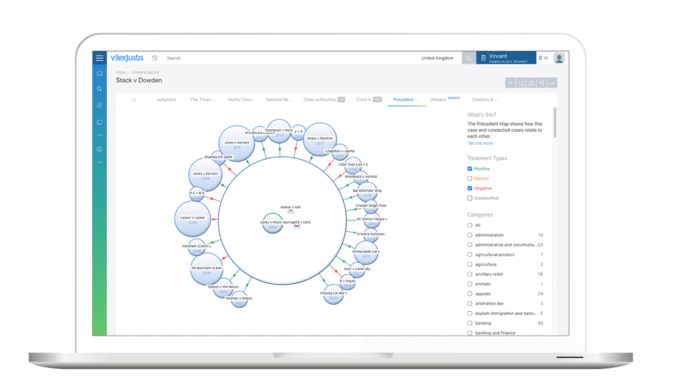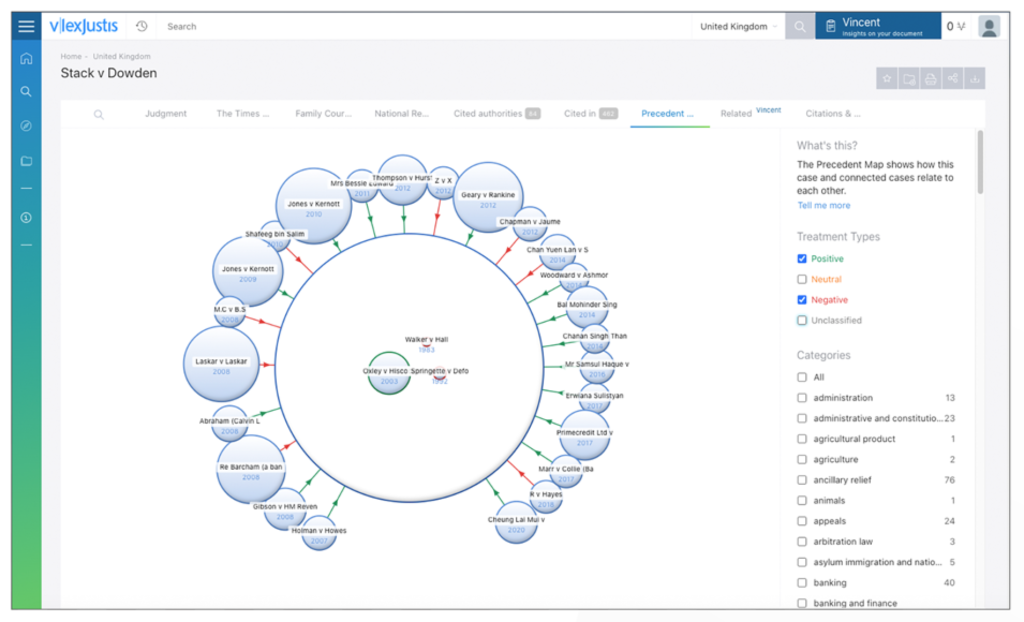
By Aidan Hawes, Head of Commercial Development at vLex Global Markets
With over 30 years of experience in developing technology to deliver legal information, the vLex Global Markets team based in London has seen many transformations in the use of legal technology, from the adoption of CD-ROMs to the rise of online platforms. In this article, Aidan shares his insights into how technology is increasingly important when the work of law firms has moved away from the office due to the COVID-19 pandemic.
—
Although there is the stereotype that the legal industry holds onto tradition at the expense of embracing the advantages that technology can offer, this has not been true for several years. Large firms are developing bespoke solutions with in-house innovation teams, and numerous well-publicised deals with leading legal technology providers have been announced in recent years.
From our position as a legal publisher and technology company, we can see that this adoption of technology has accelerated because of the changes brought about by COVID-19. While this could be seen as a short-term fix to a unique problem, we also anticipate this increasing adoption of technology will continue over the longer term, as firms such as Linklaters announce plans for extensive remote working on an ongoing basis.
To explore this changing attitude to technology, we will focus on the role of online legal research resources, as they offer specific advantages over print resources in this time of different working environments, alongside other ongoing benefits that technology makes possible. Where new resources are adopted, evaluating their effectiveness is important to establish their benefits, including what they allow for in a situation with ongoing flexible working arrangements.
Increasing the accessibility of legal research resources with online platforms
When it comes to legal research services, while most law firms already subscribe to one or more online platforms, a great many also maintain ongoing print collections of specific reported series. However, these hardbound volumes of law reports are no longer accessible when legal research is being conducted outside of the office environment.
As the legal industry adapted to working from home, and as it prepares for flexible working in the future, at vLex we have experienced an increased demand for online access to material that firms previously only maintained physical copies of.
This trend can also be seen in law schools. While academia has been utilising online legal research platforms to ensure they can scale their resources for the number of law students they teach, their adoption has also increased as they made plans for online learning. As a result of this, they have had to take into account the availability of legal information to their students when physical library resources are not available. As with law firms, this has seen an increase in the digital collections they have access to.
Easy access to large volumes of regularly updated content
While it is the concerns of content being available wherever a lawyer or student is working that is driving the increasing adoption of online resources, online legal research platforms offer other distinct advantages in the availability of content.
Access to an online platform such as those provided by vLex can provide the very latest cases within days of them being heard, alongside case law that dates back centuries. This is complemented by vast collections of legislation, books, blogs, journals and news, all available from a single resource with one search. With over 120 million legal information documents from more than 130 jurisdictions, a physical library that provides even a fraction of this is not practical to maintain due to the space needed.
Printed volumes also result in slower access to the latest material, as they need to be edited and published. This delay can have a significant impact on the ability of practitioners to conduct complete research, especially when their competitors could have access to the same material much faster.
As an example of this, cases from The Irish Law Reports are available on vLex services as soon as their editorial steps are completed. By contrast, the delay between a case being heard and its publication in a printed edition of the reports has been as long as two years.
An enhanced research process only possible with intelligent technology
Going beyond the availability of content, online platforms can offer other advantages that print resources could never provide.
vLex services also contain a range of AI-powered search and analysis tools which make the process of legal research more efficient by providing new ways to gain insights into the relationships between cases. These include features which display every subsequently cited passage of a case, enabling researchers to see the most influential parts of a judgment at a glance and powerful visualisations of the relationships between cases. AI-powered research assistant Vincent performs a human-like search with machine speed, discovering documents that a traditional search could miss, and can use practitioners’ documents as the basis for a search.

In a flexible working situation, where colleagues may not be as readily available as they might be when everyone is working in an office environment, legal research platforms that go beyond document delivery can aid in conducting more thorough research.
Re-evaluating the role of legal research technology as work environments change
As the legal industry turns more to online legal research resources as remote and flexible working emerge as a new normal, how will their value and role be re-evaluated in the future?
As considerations of efficiency are already driving legal technology adoption more broadly, they will be increasingly important in considering which online legal research platforms are the most beneficial. Where time-saving gains can be made, which also lead to cost savings, platforms which contain sophisticated search and analysis tools can offer greater benefits in freeing up legal researchers to spend more time engaging with highly relevant material.
The balance of print and digital resources is also likely to be reconsidered. While the tradition of hardbound volumes lining the shelves of an office may not be abandoned, the reality of requiring online platforms to provide comprehensive and authoritative resources in a changing working environment will necessitate a reconsideration of the roles that both play in research being conducted.
A long-term transformation?
Homeworking will likely remain a primary work environment for the remainder of 2020, and a large number of law schools across the world have begun the autumn semester with remote teaching. In these circumstances, resources must be available to facilitate this, which can include adopting new platforms. Beyond this, as large firms announce plans for flexible working, more firms and universities may follow, especially if it is found that work and teaching can happen just as effectively without being in an office environment due to any new resources acquired.
Whatever the future holds, the ongoing circumstances that the legal industry is working in offers opportunities to attempt changes, trial products, and adopt new ways of working which could enhance processes in the long term. Taking advantage of these opportunities, and evaluating them appropriately when a new normal is established is an important step in any long term transformation.

—
[ Artificial Lawyer is proud to bring you this sponsored thought leadership article by vLex. ]